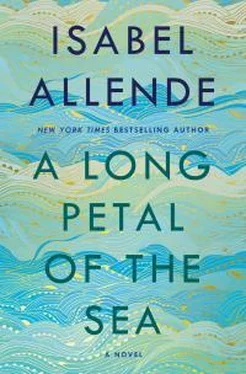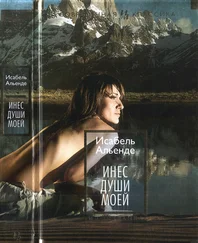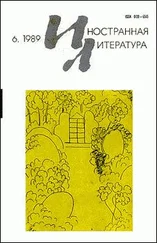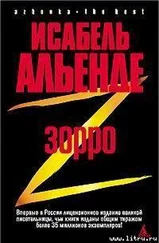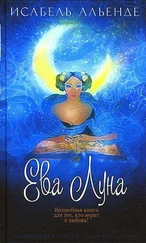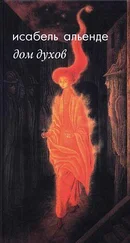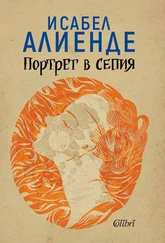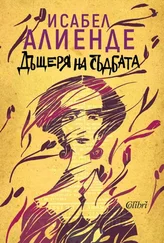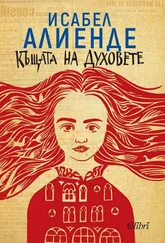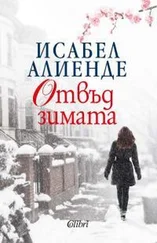He felt as if even his soul was shriveling. He was retreating into an old man’s manias, a mineral silence, into his widower’s solitude. He had gradually given up the few friends he had from before; he no longer sought buddies to play chess or the guitar with; the Sunday barbecues were a thing of the past. He carried on working, because this obliged him to connect to his patients and students, but kept an insuperable distance, as if looking at them on a screen. During the years he spent in Venezuela he thought he had once and for all overcome the solemnity that had been an essential part of his nature from childhood, as though he was in mourning for all the world’s suffering, violence, and evil. Faced with so many disasters, happiness seemed to him obscene. In love with Roser in the green, warm country of Venezuela, he had vanquished the temptation to cloak himself in sadness. As she would often tell him, this was less a mantle of dignity, more a contempt for life. But his serious nature had returned agonizingly: without Roser he was withering away. He was touched only by Marcel and his animals.
“Sadness, my enemy, is gaining ground, Ingrid. At this rate in the years I have left I’m going to turn into a hermit.”
“That would be death in life, Victor. Do as I do. Don’t wait to defend yourself against that enemy, go out and confront it. It took me years in therapy to learn that.”
“What reasons do you have to be sad, child?”
“That’s what my husband asks me. I don’t know, Victor, I suppose you don’t need reasons; it’s part of your nature.”
“It’s very difficult to change your nature. For me it’s too late, there’s nothing for it but to accept myself the way I am. I’m eighty years old: it was my birthday the day you arrived. That’s the age of memory, Ingrid. The age of making an inventory of life,” he said.
“Forgive me if I’m intruding, but can you tell me what’s in your inventory?”
“My life has been a series of journeys. I’ve traveled from one side of the world to the other. I’ve been a foreigner without realizing I had deep roots…My spirit has sailed as well. But I don’t see the point in making these observations now; I should have done so a long time ago.”
“I don’t think anybody reflects on their life when they’re young, Victor, and most people never do. It would never occur to my parents, for example, and they’re almost ninety. They simply live for the day and are happy.”
“It’s a shame we only make this kind of inventory when we’re old, Ingrid, when there’s no time left to make amends.”
“You can’t change the past, but perhaps you can banish the worst memories…”
“Listen, Ingrid, the most important events, the ones that determine our fate, are almost always completely beyond our control. In my case, when I take stock, I see my life was marked by the Spanish Civil War in my youth, and later on by the military coup, by the concentration camps and my exiles. I didn’t choose any of that: it simply happened to me.”
“But there must be things you did choose…like medicine, for example.”
“That’s true, and it’s given me a great deal of satisfaction. But do you know what I’m most grateful for? Love. That has marked me more than anything else. I was incredibly lucky to have Roser. She’ll always be the love of my life. Thanks to her I have Marcel. Being a father has also been essential for me; it’s allowed me to keep faith in what’s best in the human condition. Without Marcel that would have been crushed. I’ve seen too much cruelty, Ingrid. I know what mankind is capable of. I also loved your mother a great deal, although that didn’t last long.”
“Why? What happened exactly?”
“Those were different times. Chile and the world have changed a lot in the past half century. Ofelia and I were separated by a social and economic gulf.”
“If you loved each other so much, you would have run the risk…”
“She once suggested we escape to some tropical country to live our love beneath the palm trees. Just imagine! In those days Ofelia was passionate and had an adventurous spirit. But I was married to Roser, I had nothing to offer her, and knew that if she left with me she’d regret it within a week. Was that cowardice on my part? I’ve often wondered. I think it was a lack of empathy. I didn’t measure the consequences of my relationship with Ofelia. I did her a lot of unintentional damage. I never knew she was pregnant. She never knew she’d given birth to a little girl, who lived. If we had known, it would have been a different story. There’s no point digging up the past, Ingrid. But anyway, you’re a child of love. You should never doubt that.”
“Eighty is a perfect age, Victor. You’ve already more than fulfilled your obligations, you can do whatever you like.”
“Such as what, daughter?” Victor said with a smile.
“Go off on another adventure, for example. I’d love to go on safari in Africa. I’ve been dreaming of it for years, and one day, when I manage to convince my husband, we’ll go. And you could fall in love again. You’ve nothing to lose, and it could be fun, couldn’t it?”
It seemed to Victor he was listening to Roser in her final moments, reminding him that we human beings are gregarious, we’re not programmed for solitude, but to give and receive. That was why she insisted he mustn’t withdraw into old age, and even chose him a new partner. He suddenly thought tenderly of Meche, the kindhearted neighbor who gave him the cat, brought him tomatoes and herbs from her garden, the tiny woman who sculpted fat nymphs. He decided that as soon as his daughter had left, he would take Meche what was left of his arròs negre with squid, and the Catalan dessert. Sailing on, he thought, on until the end.
To my brother Juan Allende
To Victor Pey Casado and other navigators of hope
ACKNOWLEDGMENTS
I FIRST HEARD ABOUT THE Winnipeg, the ship of hope, in my childhood, at my grandfather’s. Many years later I heard that evocative name once more in conversation with Victor Pey in Venezuela, where we were both exiles. In those days I wasn’t a writer and didn’t imagine I would become one, but the story of that boat stayed in my memory. It’s only now, forty years later, that I can tell it. This is a novel, but the events and historical individuals are real. The characters are fictional, inspired by people I’ve known. I have had to imagine very little, because as I was doing the exhaustive research I carry out for each novel, I found I had more than enough material. This book wrote itself, as if it had been dictated to me.
Heartfelt thanks to:
Victor Pey, who died at 103, with whom I had a copious correspondence to get the details right.
Dr. Arturo Jirón, my friend in exile.
Pablo Neruda for taking the Spanish refugees to Chile, and for his poetry, which has always accompanied me.
My son Nicolás Frías, who carried out the first meticulous reading, and my brother Juan Allende, who corrected the manuscript page by page several times, and helped me with research into the period covered by this story, from 1936 to 1994.
My Spanish editors, Nuria Tey and Johanna Castillo.
My English editor, Jennifer Hershey.
My loyal researcher, Sarah Hillesheim.
My agents, Lluis Miquel Palomares, Gloria Gutierrez, Maribel Luque, and Johanna Castillo.
Alfonso Bolado, who carefully checks my manuscripts out of pure affection, because he’s already retired. He forces me to do my best.
Jorge Manzanilla, the ruthless (and according to him, good-looking) reader who corrects my slips, because after forty years of living in English, I commit dreadful grammatical and other mistakes.
Adam Hochschild, for his extraordinary book Spain in Our Hearts, and fifty or more other authors whose books were invaluable for my historical research.
Читать дальше
